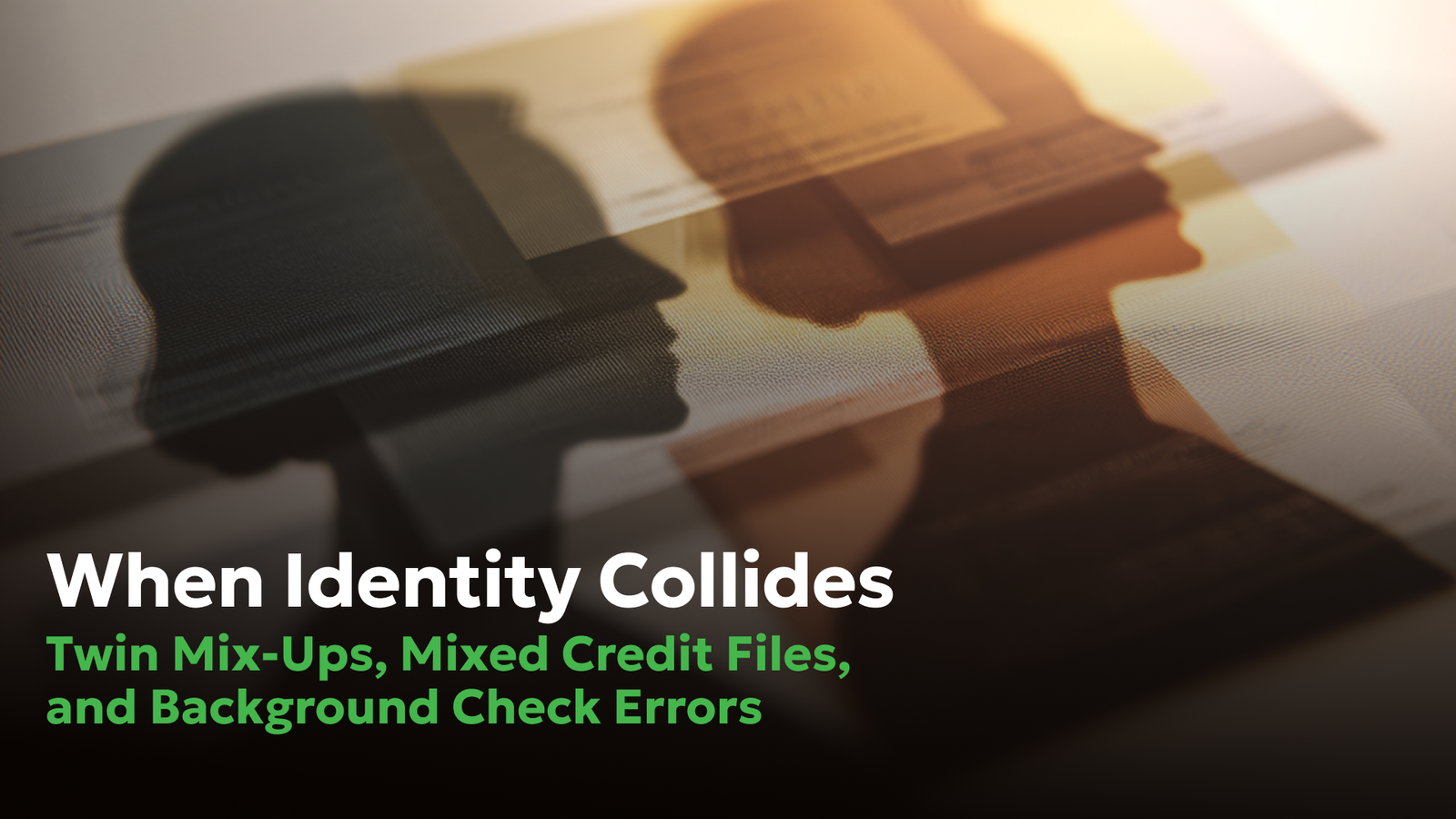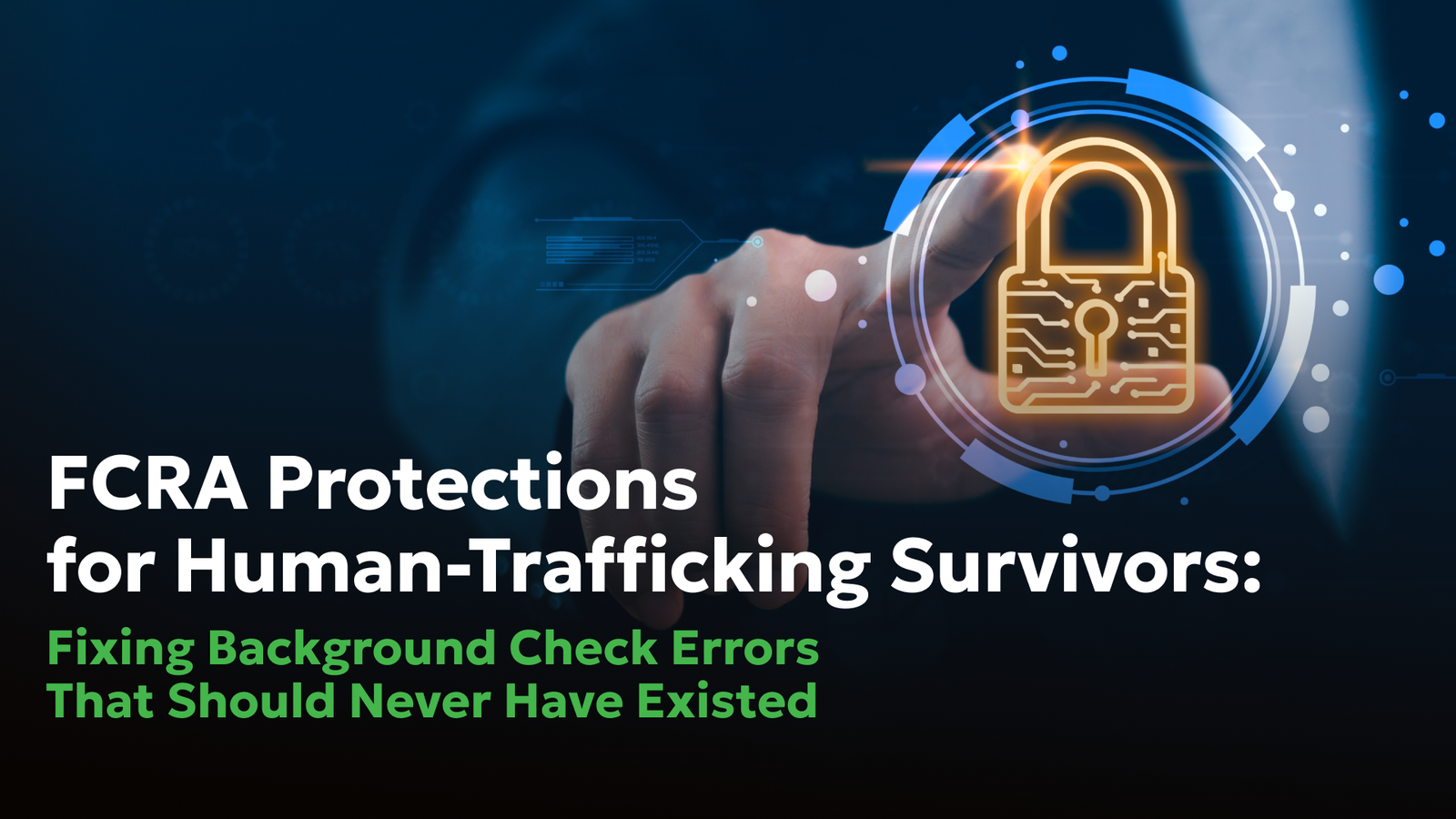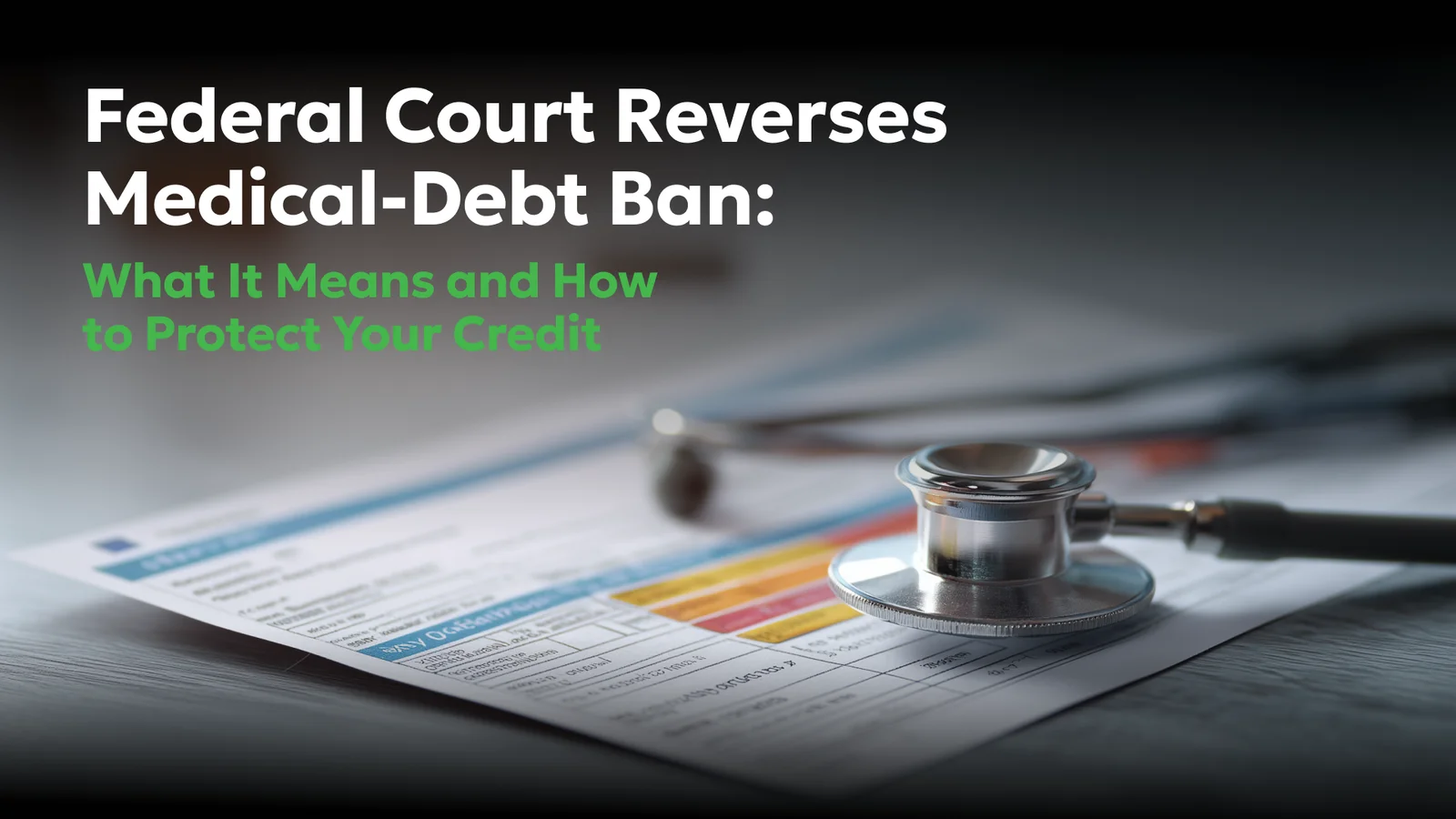How to Remove Hard Inquiries from Equifax Credit Report
- Blog
- Credit Reporting Inaccuracies
How to Remove Hard Inquiries from Equifax Credit Report

Unlock Your Future - Master the Art of Removing Equifax Hard Inquiries with Consumer Attorneys!
Dive deep into the world of Equifax hard inquiries – from decoding their impact on your credit score to mastering dispute techniques. Empower yourself to take charge of your credit report and pave the way to a better credit future.
Unauthorized hard credit inquiries on your Equifax report can impact your credit score and impede your access to credit. This guide equips you with the knowledge to rectify unauthorized inquiries. You will learn how to dispute credit inquiries on Equifax, understand your rights, overcome obstacles, and explore compensation options.
Credit reports often harbor errors, and if you've encountered unauthorized hard inquiries on your Equifax credit report, removing inquiries from Equifax is vital. Beyond boosting your credit score, this process safeguards your creditworthiness, enhancing your chances of securing credit when needed. We'll cover credit inquiries, the occurrence of unauthorized inquiries, their adverse effects, how to dispute credit inquiries on Equifax reports, and the valuable support consumer protection attorneys can offer. Stay informed to take the necessary steps to dispute hard credit inquiries from Equifax reports, a crucial component of maintaining overall financial health.
What Is a Credit Inquiry?
A credit inquiry refers to when you or someone else (like a bank, lender, or landlord) checks your credit history from major credit bureaus, such as Equifax, Experian, or TransUnion. Your credit report is like a financial snapshot, showing various details about your financial situation, including:
- Bank and financial accounts
- Debts from credit cards, mortgages, or other loans
- Details about properties or addresses tied to you
- Opened or closed accounts
- Any late payments
- The status of loans
Credit inquiries can be either passive, like when you keep an eye on your report, or active, when someone checks your credit as part of a loan application. We will discuss both types of inquiries and how to dispute those inquiries with Equifax. Let's break it down further below.
Types of Credit Inquiries
When you or a third party views your Equifax credit profile, it is classified as a credit inquiry. Given that credit inquiries can impact your credit score (explained later), it's essential to differentiate between regular monitoring and investigations with a specific intent. The industry identifies two types of credit inquiries: soft and hard.
- Soft Inquiries. Soft inquiries occur when you or a third party checks your credit for routine monitoring purposes, like when you review your credit report for any irregularities. A soft inquiry is considered routine and harmless and will not adversely affect your score like a hard inquiry.
- Hard Inquiries. Hard inquiries happen when a third party, such as a lender or a creditor, checks your credit to make a lending decision. Applying for an extension of credit for a loan, credit card, or mortgage usually triggers hard inquiries. While they can impact your credit score, they are essential for assessing your creditworthiness during significant financial transactions. If you have questions regarding how to remove inquiries from Equifax, you can contact a lawyer to dispute your credit report.
Soft Credit Inquiries
Soft credit inquiries, often termed soft pulls, occur for purposes other than borrowing and lending. Soft pulls commonly happen during Equifax background checks, pre-qualified credit offers, or when you check your credit score. The positive aspect of soft inquiries is that they don't affect your credit score. They do not impact lenders' decisions and are visible only to you.
Hard Credit Inquiries
Hard credit inquiries, or hard pulls, result from your active pursuit of credit. When you apply for credit, the lender conducts a hard inquiry to assess your creditworthiness. While one hard inquiry has a smaller impact on your credit score, several inquiries within a short period can signal financial stress. They may lead to fluctuations in credit scoring and, ultimately, a decrease in your Equifax credit score. If you want to know how to dispute Equifax credit inquiries, continue reading; we will cover that in this guide.
How Credit Inquiries Could Hurt Your Equifax Credit Score?
Unlike soft inquiries, only hard inquiries affect your Equifax credit score, signaling an active interest in obtaining credit or taking on additional debt. Each hard inquiry within a certain period deducts points from your credit score, reflecting the likelihood of expanding credit. Research indicates that individuals acquiring more debt may encounter challenges in managing existing debts, reducing credit scores.
Hard inquiries act as a record of your recent applications for new credit and might linger on your credit report for up to two years, with their impact on your credit scores usually lasting for a year. The significance of hard inquiries can vary among lenders based on your credit history. For lenders, recent hard inquiries signal your ongoing search for new credit, offering insights into your current credit-seeking behavior. This information is valuable for potential lenders as they evaluate your creditworthiness for approval. Remember, you can question the inquiry's accuracy and dispute Equifax inquiries if they were unauthorized.
Can You Remove Inquiries from Your Equifax Credit Report?
Certainly! Not all inquiries are eligible for removal, but erroneous inquiries can be removed from your Equifax credit report. Any inquiry you authorize cannot be eliminated from your credit report as it is rightfully reported. If it was legitimately authorized, regretting the decision doesn't warrant removal. However, it can be contested if unauthorized hard inquiry discrepancies appear on your Equifax report. Equifax offers a dispute process to investigate and rectify errors. You can find the necessary information for disputing hard inquiries on Equifax via the Equifax website. We recommend submitting your dispute through certified mail for added assurance.
How to Dispute Hard Inquiries on Equifax
You can remove unauthorized or inaccurate hard inquiries from your Equifax credit report by following a straightforward dispute process. Begin by:
- Gather evidence supporting the inaccuracy. You'll want to provide the documents showing the errors.
- Draft a detailed dispute letter to Equifax. This letter should clearly explain the inaccuracies and provide supporting documentation.
- Submit your dispute. (Preferably via certified mail to preserve your legal rights.)
- Contact Consumer Attorneys. Contacting an attorney is a good starting point, but there is still time to do this, even if you've begun the dispute process. Consumer Attorneys will address your concerns and provide a free case evaluation.
When initiating an Equifax dispute, you can file through an online platform, phone, or mail. However, for added security and to retain your right to sue Equifax if needed, it is advisable to utilize certified mail. Many online dispute platforms may entail agreeing to terms and conditions, including waiving your right to file a lawsuit related to the dispute. It is not recommended to waive this right at the initial stage of the dispute process.
Letter Template
Below is a letter template that will help you dispute inquiries on your Equifax credit report. The Federal Credit Reporting Act (FCRA) gives you the legal authority to dispute erroneous inquiries on your credit report.
You can find a sample letter on the Federal Trade Commission's website or use the one we've provided below.
[Your Name]
[Your Street Address]
[Your City, State, Zip Code]
[Your Phone Number]
[Your Email Address, if any]
[Date]
Equifax
P.O. Box 740256
Atlanta, GA 30374
Subject: Disputing Information in Credit Report - Unauthorized Hard [Inquiry/Inquiries]
I am writing to dispute the following information that appears in my Equifax credit report. Enclosed is a copy of my current Equifax credit report, with the [item/items] in dispute circled and marked with corresponding numbers.
Dispute #1
This item, circled and marked with #1, is inaccurate as I did not authorize a hard inquiry from [business name] on [date]. I do not recognize this inquiry and did not authorize it. I request Equifax provide documentation proving my authorization for [business name] to make this hard inquiry on [date] or remove it from my credit report, adjusting my credit score accordingly.
Dispute #2
This item, circled and marked with #2, is inaccurate as I did not authorize a hard inquiry from [business name] on [date]. I do not recognize this inquiry and did not authorize it. I request Equifax provide documentation proving my authorization for [business name] to make this hard inquiry on [date] or remove it from my credit report, adjusting my credit score accordingly.
[Add as many additional numbered dispute items as necessary.]
Please reinvestigate [this/these] disputed [item/items] promptly and in accordance with the law.
Sincerely,
[Your Name]
SSN:[Your Social Security Number]
Enclosures: Marked-up copy of my Equifax credit report indicating disputed [item/items]
Benefits of Professional Legal Support with Equifax
Seeking professional legal support can significantly enhance your chances of successfully disputing inquiries on Equifax's credit report. Consumer Attorneys have helped thousands of clients rectify inaccurate Equifax hard credit inquiries. If you did not authorize a hard inquiry and the inquiry is an error, you have a legal right to dispute the error and file a lawsuit!
How Much Does It Cost?
The cost of professional legal support varies. The good news is that Consumer Attorneys is a nationwide law firm that costs zero out-of-pocket costs to you!
Ask for Our Help Now
Considering the complex nature of credit disputes, contacting an FCRA lawyer for expert assistance can expedite the resolution process. Taking proactive steps with professional support can lead to a more accurate credit history, ultimately enhancing your creditworthiness.
Explore Your Solutions
In situations like yours, each client is distinct. Recognizing the need for personalized solutions, we understand that addressing Equifax's hard inquiry errors requires an individualized approach. As a nationwide firm, we can help no matter where you are. You won't face any out-of-pocket costs, and our experienced attorneys are ready to push your case forward! Contact us at info@consumerattorneys.com, complete the online intake form, or engage in a live chat through our website's virtual chat feature. Getting rid of mistakes on your credit report starts with us!
Frequently Asked Questions
Credit inquiries typically linger on your Equifax credit report for up to two years. But, their impact on your credit score should disappear after the first year. While they serve as a record of recent credit applications, prudent financial management can help mitigate any adverse effects. If you have recent inquiries that are not accurate, you have a legal right to dispute these errors. The sooner you dispute the errors, the sooner you can begin rebuilding your credit.
Discovering hard inquiries on your Equifax credit report is accessible through the Equifax website or by contacting them for a free annual copy. You should take advantage of the free annual copy of your Equifax credit report because it will help you stay privy to your credit score along with any recent hard inquiries that could cause your credit score to drop. Utilize these resources to stay informed about who has recently checked your credit history.
To remove inquiries from Equifax, initiate the dispute process through their online platform, phone, or mail. We recommend using certified mail and sending them a letter. Identify inaccuracies in the letter and provide supporting documentation for a thorough investigation, leading to potential removal. You should use the letter mentioned above. If you need additional help because Equifax won't remove inquiries, you should contact a lawyer to dispute credit report. Consumer Attorneys have helped thousands of customers recover millions of dollars, and we can help you, too!
Equifax refers to stopping hard inquiries as placing a "freeze" on your Equifax credit report. You can freeze your Equifax account by creating an Equifax account online. You'll need to provide Equifax with your name, social security number, current address, and other information to help identify your credit file. Once you provide the required information, you can request, manage, and stop the freeze for free online. If you are still waiting to receive the help you need and still have questions about how to remove credit inquiries from Equifax, contact Consumer Attorneys for assistance!


Daniel Cohen is the Founder of Consumer Attorneys. Daniel manages the firm’s branding, marketing, client intake and business development efforts. Since 2017, he is a member of the National Association of Consumer Advocates and the National Consumer Law Center. Mr. Cohen is a nationally-recognized practitioner of consumer protection law. He has a we... Read more
Related Articles




R
ONGS™You pay nothing. The law makes them pay.







